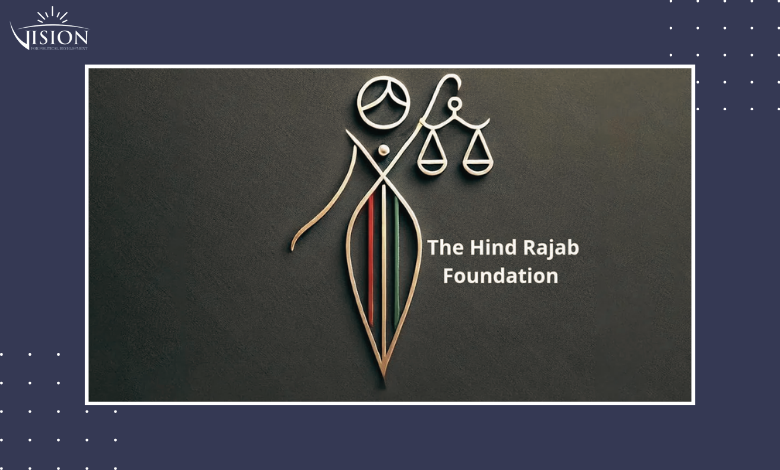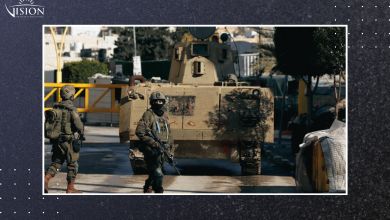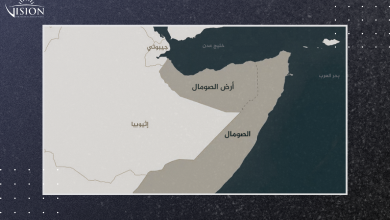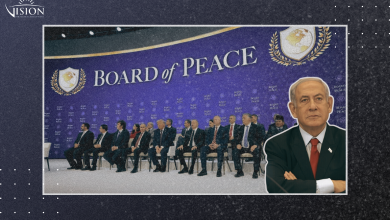Hind Rajab Foundation: An effective Palestinian Approach to Pursuing Israel in International Forums

In light of the ongoing and escalating crimes of genocide committed by “Israel” in the Gaza Strip—most notably the systematic targeted killing of civilians—the “Hind Rajab Foundation” has emerged to shed light on these crimes and to pursue their perpetrators, including soldiers and officers of the occupation army, before international courts and national courts in various European countries.
Most recently, it filed a case with the International Criminal Court against the Israeli Minister of Defense, his spokesperson, and other military leaders for their responsibility in the assassination of journalists Anas al-Sharif, Muhammad Qurayqa, and their colleagues, who were killed when the journalists’ tent in the courtyard of al-Shifa Hospital was targeted. This is in addition to dozens of legal complaints the Foundation has submitted in several European countries and beyond.
In response, “Israel” imposed sanctions on the Foundation, targeting 50 prominent figures, including its chairman, Diab Abu Jahjah. It also launched a media campaign against the Foundation to undermine its credibility and allocated significant resources to disrupt its work. However, according to the Foundation, these sanctions remain largely internal in nature, with their impact confined to the West Bank and the Gaza Strip, and their effect abroad remaining limited. Furthermore, “Israel” is seeking to have the Foundation placed on international financial sanctions lists, particularly in the United States. Despite these efforts, the Foundation’s activities continue and are expanding.
This report aims to shed light on the legal efforts of the Hind Rajab Foundation in pursuing occupation soldiers and officers in the international arena, and its ability to generate significant concern for “Israel,” particularly at a time when many international institutions have retreated from playing an active role in prosecuting and legally pursuing “Israel’s” crimes. The report addresses the circumstances surrounding the Foundation’s establishment and presents its legal efforts with concrete figures, positioning it as part of the broader Palestinian struggle against the occupation beyond geographical borders. It also explores the potential implications of its international efforts for “Israel” in the future.
Hind Rajab Foundation: Origins, Role, and Objectives
The Hind Rajab Foundation was established in 2024 and announced on October 12 that its work would be based at its headquarters in the Belgian capital, Brussels. The Foundation was named after the child Hind Rajab, who was cold-bloodedly killed by the Israeli occupation army along with members of her family in Gaza, and whose case drew further outrage when Israeli forces targeted the ambulance crews attempting to reach her on January 29, 2024.
The Foundation is led by a group of legal experts and anti-occupation activists, including its chairman, Diab Abu Jahjah, and its Secretary-General, Karim Hassoun. Its work focuses on documenting crimes against humanity and war crimes committed by “Israel” against Palestinians, pursuing the perpetrators and their accomplices, and taking legal measures against those responsible and those inciting violence against Palestinians. The Foundation’s ultimate goal is to seek justice for Hind Rajab and for all victims of genocide in Gaza.
The Foundation is regarded as the legal arm of the March 30 Movement, an anti-occupation initiative established by Palestinian activists in Europe in December 2023 to document the genocide perpetrated by “Israel” in the Gaza Strip. The movement drew its name from Land Day, commemorated annually on March 30 by Palestinians, symbolizing the Palestinian people’s rights to their land and sovereignty.
The movement’s key objectives include:
- Ending the system of apartheid in Palestine.
- Achieving “a just and lasting peace for the Palestinian people and all peoples of the region.”
- Opposing all forms of discrimination and hatred, including Islamophobia and antisemitism.
Drivers and Constraints Facing the Hind Rajab Foundation’s Activities in the International Arena
The Hind Rajab Foundation operates within the international arena, beyond the bounds of direct Israeli control, which strengthens its ability to act and mobilize support. Its activities are particularly empowered by the multiplicity of judicial jurisdictions in this space, enabling the Foundation to pursue occupation soldiers in numerous countries where solidarity movements with the Palestinian people are active. The Foundation also leverages the media symbolism of its name and founding story, along with its connection to the Palestinian diaspora in countries hosting Palestinian refugees committed to resisting occupation and apartheid through available means, and that share the same principles upon which the March 30 Movement was established.
At the same time, the Foundation faces various international constraints, most notably the length and complexity of judicial procedures in certain countries, and the reliance on national courts in the absence of comprehensive international cooperation on this matter. Many cases and complaints also become subject to political and diplomatic calculations, which slows down enforcement and diminishes the strength of judicial measures. In addition, the Foundation must contend with Israeli propaganda and counter-efforts aimed at obstructing its work.
Mechanisms of Data Collection and International Prosecution of Occupation Soldiers
The Foundation has developed a database of Israeli soldiers, officers, and commanders who took part in the genocidal onslaught in Gaza. By January 2025, it had submitted 1,000 names to the International Criminal Court. These data were gathered primarily from Israeli sources, most notably the personal social media accounts of soldiers who, out of pride, shared photos and videos documenting their crimes. The Foundation archived and used this material as evidence to build legal files and prepare lawsuits, supported with substantiating proof through its legal team, in order to pursue action against them and secure their arrest during international travel. In filing such cases before national courts, the Foundation relies on the principle of “universal jurisdiction” over dual-nationality Israeli soldiers.
| Country / Authority | Number of Cases / Targeted Persons | Type of Cases Filed | Date | Results or Progress Achieved |
| International Criminal Court (ICC) | 1,000 soldiers | Collective complaint against soldiers who committed war crimes and genocide | Oct 2024 | Evidence submitted requesting arrest warrants; no tangible results issued. |
| International Criminal Court (ICC) | Lt. Col. Aharon | Cold-blooded killing of Hind Rajab | May 2025 | Complaint filed with evidence. |
| Brazil | Israeli soldier | Criminal complaint | Jan 2025 | Court order for investigation by federal police. |
| Argentina | Israeli officer | Criminal complaint – use of human shields… | Jan 2025 | Case remains open after his escape. |
| Chile | Israeli officer in engineering unit | Criminal complaint | Dec 2024 | Official investigation launched by the public prosecutor. |
| Sweden | Israeli sniper | Criminal complaint – war crimes | Jan 2025 | Case submitted according to sources. |
| Spain | Israeli officer | Criminal complaint – war crimes and genocide | Jan 2025 | Complaint formally submitted. |
| Israeli officer | Criminal complaint – war crimes | Jan 2025 | Legal progress made, no final results yet. | |
| Italy | Brigade commander | Criminal complaint – starvation as a method of warfare | Jan 2025 | Reports confirm complaint submitted to Italian authorities. |
| Belgium | Israeli officer | Criminal complaint – siege and attacks on hospitals | Jun 2025 | Legal proceedings ongoing. |
| UK | Israeli Foreign Minister | Attacks / arbitrary detention | Apr 2025 | Arrest request filed in April 2025, rejected by UK Attorney General. |
| Portugal | Israeli sniper | Criminal complaint | Jul 2025 | Complaint filed, no reported progress. |
| Peru | Soldier in engineering corps | Criminal complaint – criminal investigation | May 2025 | Authorities launched official investigation after complaint. |
| Belgium | Two cases against two soldiers | Urgent complaint | Jul 2025 | Interrogation and investigation carried out; file referred to ICC. |
| Cyprus | Israeli soldier | Legal complaint | Jul 2025 | Complaint filed, no reported progress. |
| UK | Israeli naval commando unit commander | Interception of Handala ship | Aug 2025 | Formal criminal complaint submitted to War Crimes Unit at Scotland Yard. |
| International Criminal Court (ICC) | Chief of Staff, military commanders, and Israeli army spokesperson | Assassination of journalist Anas al-Sharif and fellow journalists | Aug 2025 | Request filed for arrest warrants; demanded inclusion of all journalist killings in Gaza and expansion of Netanyahu’s arrest warrant. |
| Multiple countries (Germany, Austria, Serbia, etc.) | Around 100 files in 14 countries | Complaints based on principle of universal jurisdiction | Since 2024 | Complaints filed, some public and some confidential. |
Israel’s Efforts to Counter “Hind Rajab Foundation” at Domestic and International Fronts
Israel seeks to obstruct the work of the Hind Rajab Foundation internationally by imposing sanctions on its representatives and attempting to undermine its outreach through propaganda and media disruption abroad. This was evident in Belgium, where the occupation authorities submitted a report full of allegations that were later proven false. Belgium’s Minister of Justice, Annelies Verlinden, clarified in an official statement that there was no issue with the Hind Rajab Foundation, noting that “the Israeli allegations are based on propagandist fabrications.”
These pursuits coincided with from the Hind Rajab Foundation and four other organizations from entering Israel. At the same time, the Israeli army issued internal directives restricting soldiers participating in the war from posting on social media, requiring the removal of previously shared content, and prohibiting the showing of soldiers’ faces in army-produced coverage of operations. Furthermore, Israeli authorities intensified their international lobbying efforts to shield soldiers from complaints filed against them, often engaging in swift diplomatic interventions prior to interrogation or arrest, as occurred in Brazil and Cyprus.
These measures indicate that Israel fears international prosecution of its soldiers involved in the war. Despite employing diplomatic tools and Israeli media propaganda to counter Palestinian and global media condemning Israel’s actions in Gaza, and despite Israel’s weight and influence in European capitals, it remains apprehensive about accountability in the international arena amid the rise of global mobilization and the growing activity of solidarity movements with the Palestinian people. These movements are seeking to employ indirect tools to hold Israel accountable beyond its geographic reach.
The continued work of the Hind Rajab Foundation instills a sense of self-surveillance among Israeli soldiers, who increasingly perceive personal risk when traveling abroad. This can increase the number of those refusing military service and reduce soldiers’ public boasting about their crimes and roles in the genocide, out of fear of arrest or interrogation. The Israeli military establishment has also grown more concerned about the exposure of its soldiers’ personal data and dual nationalities. This further preoccupies Israeli diplomacy and its missions, which must confront ongoing lawsuits and legal pursuits in Europe and beyond.
These legal efforts are paralleled by expanding media campaigns led by pro-Hind Rajab movements and solidarity actions with the Palestinian people, all converging to counter Israeli propaganda. Such momentum could also pave the way for non-Palestinian actors to file lawsuits against Israel and its soldiers, or to support cases initiated by the Hind Rajab Foundation, thereby advancing the use of “universal jurisdiction” against Israel.
Under this principle, any state may prosecute individuals accused of committing crimes against humanity, genocide, torture, and other grave violations—even if these crimes were committed outside its territory and by non-citizens. The legal foundation for this principle lies in the 1949 Geneva Conventions, the Convention Against Torture, and the Convention on the Prevention and Punishment of the Crime of Genocide, among others. The principle remains effective in a number of European countries, including Spain.
Conclusion
The efforts of the Hind Rajab Foundation have demonstrated that pursuing Israel before international courts can yield tangible results for the Palestinian cause and the defense of the Palestinian people’s rights. Such efforts can alter the prevailing diplomatic and military equation, especially as the Foundation’s work has created a state of anxiety within Israel and its institutions both domestically and internationally—an impact that could prove decisive on the international arena.
This potential becomes even greater if the Foundation deepens its connection with broader Palestinian struggles, including legal, media, and diplomatic pressure led by Palestinian communities and their capacities abroad, in the pursuit of justice and accountability for the occupation. The momentum of these efforts grows alongside the expanding global solidarity movement with the Palestinian cause.
Ultimately, these initiatives may activate an important dimension of international law—one that Israel has long managed to obstruct—and could turn its crimes of genocide into a diplomatic burden for Israel and its international relations.
Adabted from the Arabic version.





